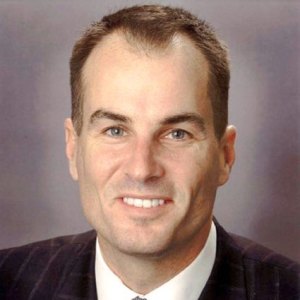Jay Bilas
Part 3 of 3
Interview Conducted 9/22/2008

IMG Speakers
This is the third of a three part interview:
For Part 1: Click Here
For Part 2: Click Here
The recruiting process took place through high schools, high school basketball coaches, and parents during the era when Bilas was a top recruit.
Now because of NCAA regulations prohibiting when high school basketball coaches can be contacted, the coaches have little influence in most cases over their player’s recruitment and ultimately their final college decision.
BILAS: “Right now, [college] coaches that are recruiting players are dealing with people who are not in any way, shape, or form educators, and that’s a very big difference.”
“What do you have to do to be a AAU coach? You have to be able to blow through a whistle. That’s all it takes.”
“So because of the way the recruiting rules are, those people have more influence over the process than they used to, and the process has been moved up now. It’s really rare to find a top 50 player who hasn’t committed before the start of his senior year. Everything’s very different.”
Bilas emphasized that AAU basketball tournaments, which are NCAA-certified, can be a positive form for players to improve their game.
What concerns him is that AAU basketball gets mislabeled by many as “Summer Basketball Culture.” He defined true “Summer Basketball Culture” as leagues run by people who operate without regulation and accreditation.
What does Bilas think of the NBA’s rule, now in its third year, which prohibits prep players from making a direct jump to the league after graduation?
BILAS: “It is not a mistake at all. People are using this one-and-done rule as if it is some tragic consequence of the NBA’s age limit.”
“People could always leave after their first year. That’s always been the case. There has always been players leaving after their freshman year since this [early-entry] phenomenon came to be.”
“So the idea that half a dozen kids now, or let’s go with the boldest estimate, a dozen kids, go to college who otherwise wouldn’t have. That’s 12 out of that entire pile [of a prep class] and is hardly a big deal. If people say ‘well, they are not real students and they can just stay eligible for one year and go’. That’s always been the case. You always had kids who have been able to do it theoretically.”
Rather than wait a year in college to play basketball, Brandon Jennings, one of the top prep point guards of the 2007-08 class, signed a three-year contact with Virtus Roma of the Italian Basketball League for $1,000,000.
Bilas disagrees with the notion that Brandon Jennings is going over there to become a basketball trailblazer (which two days after this interview, Yahoo! Sports writer Adrian Wojnarowski, in an unrelated column, cast an opposing view).
BILAS: “Brandon Jennings isn’t going over there to make money, He’s going over there because he didn’t qualify. That’s a big part of this that people are ignoring.”
“He’s not going over there because he wanted to be a trailblazer and make a lot of money. He wanted to go over there because he didn’t have any other option. He can’t go into the NBA, and he’s not going to make any money in the Development League.”
This is not a proverbial “tip of the iceberg” for future prep stars who have to wait a year to play in the NBA in Bilas’ opinion.
BILAS: “I don’t see a bunch of European teams competing to sign a bunch of 18 year old kids, players that they know who are going to leave after a year if they do really well, to big contracts.”
“You’re not going to see that many guys who are willing to say ‘okay, I’m going to give up all the exposure. I’m going to give up living in my home country to go over to a foreign country where I don’t know anybody, I don’t know the culture, and I don’t know how I’m going to survive it.”
“I don’t see that happening, but maybe it will. It’s a good option to look at. I played overseas for three years, but I don’t think it’s going to open a floodgate of prospects who are going to go overseas.”
“He’s not trying to be a trailblazer. He’s got an agent pointing him in this direction, but this was not a decision made as the best thing for Brandon Jennings. It was made because he didn’t qualify.”
“If he qualifies, he would be at Arizona. That’s what he said he wanted to do and was fighting to qualify and didn’t. When it didn’t happen, that’s when this card was played.”
© 2008 Interviewbasketball.com
Excerpts from this interview may be reproduced by other blogs, message boards, and other texts, provided there is a link or a trackback to my website. Any other reproduction or translation of this work beyond that permitted by Sections 107 or 108 of the 1976 United States Copyright Act without permission of Interviewbasketball.com is unlawful.




